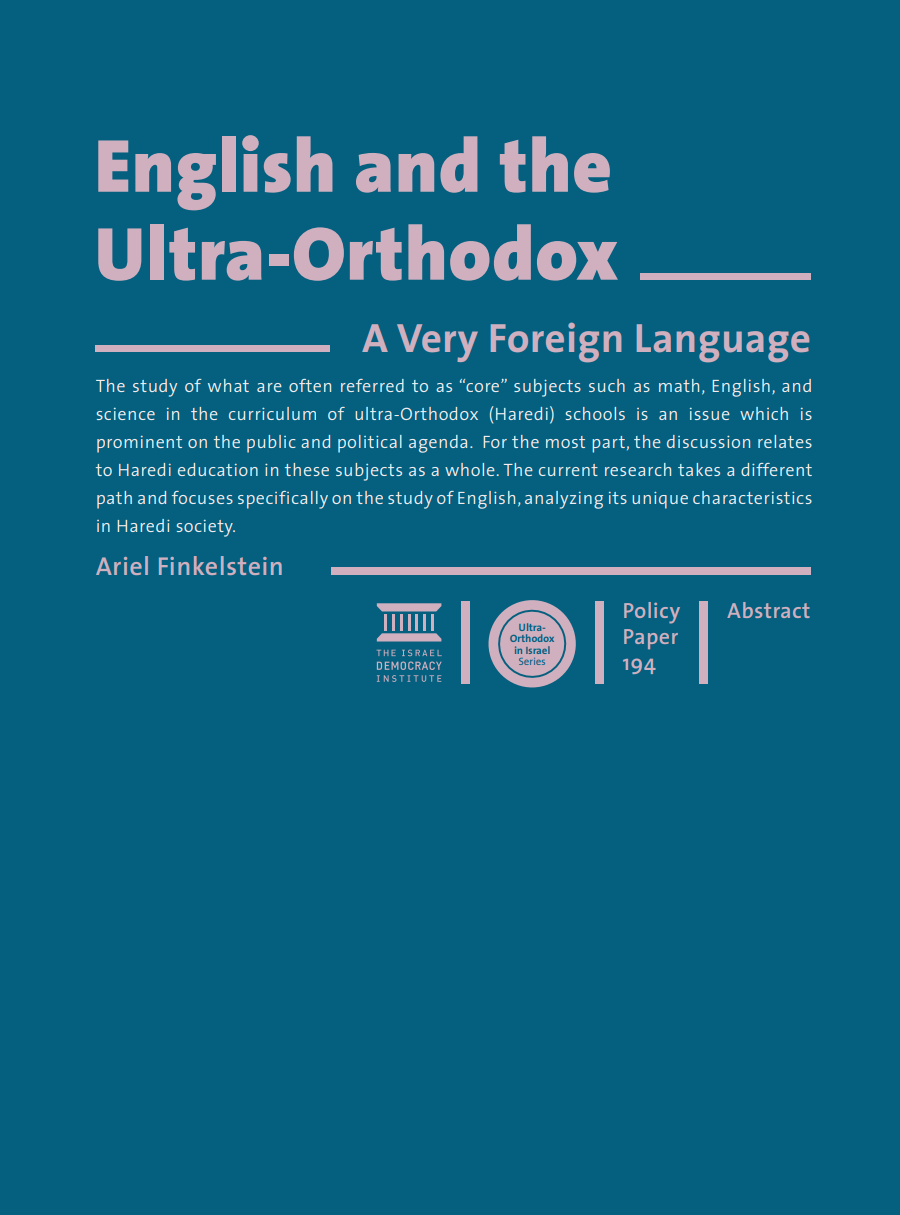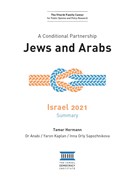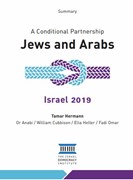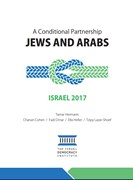

Publications Regarding Conditional partnership
Articles

Amid IDF draft effort, state to cut daycare subsidies for haredi families
Written By: Dr. Gilad Malach
IDI's Dr. Gilad Malach joined Kann English podcast to discuss the issue of ultra-Orthodox conscription and the ensuing termination of daycare subsidies for children of yeshiva students who refuse draft orders.

A Joint Effort: Integrating Haredim in the IDF
Written By: Prof. Daniel Statman
The IDF should do what it can to ease the transition of Haredim from the social frameworks in which they have grown up and been educated into the military, but it is also important for new conscripts to understand that the rules cannot be changed according to the preferences of every single soldier or group.

Quality of Life and Standard of Living
Written By: Dr. Muhammed Khalaily, Dr. Ahmad Badran , Dr. Arik Rudnitzky
The second chapter of four from the Arab society 2023 statistical report.

A Historic Supreme Court Hearing on Haredi Conscription and Yeshiva Funding
Written By: Adv. Shlomit Ravitsky Tur-Paz
Israel's Supreme Court convened to hear arguments on the issue of drafting ultra-Orthodox yeshiva students who no longer are exempt from military service, and the legality of providing funding for yeshivas that enroll them as long as no new law has been legislated on this issue.
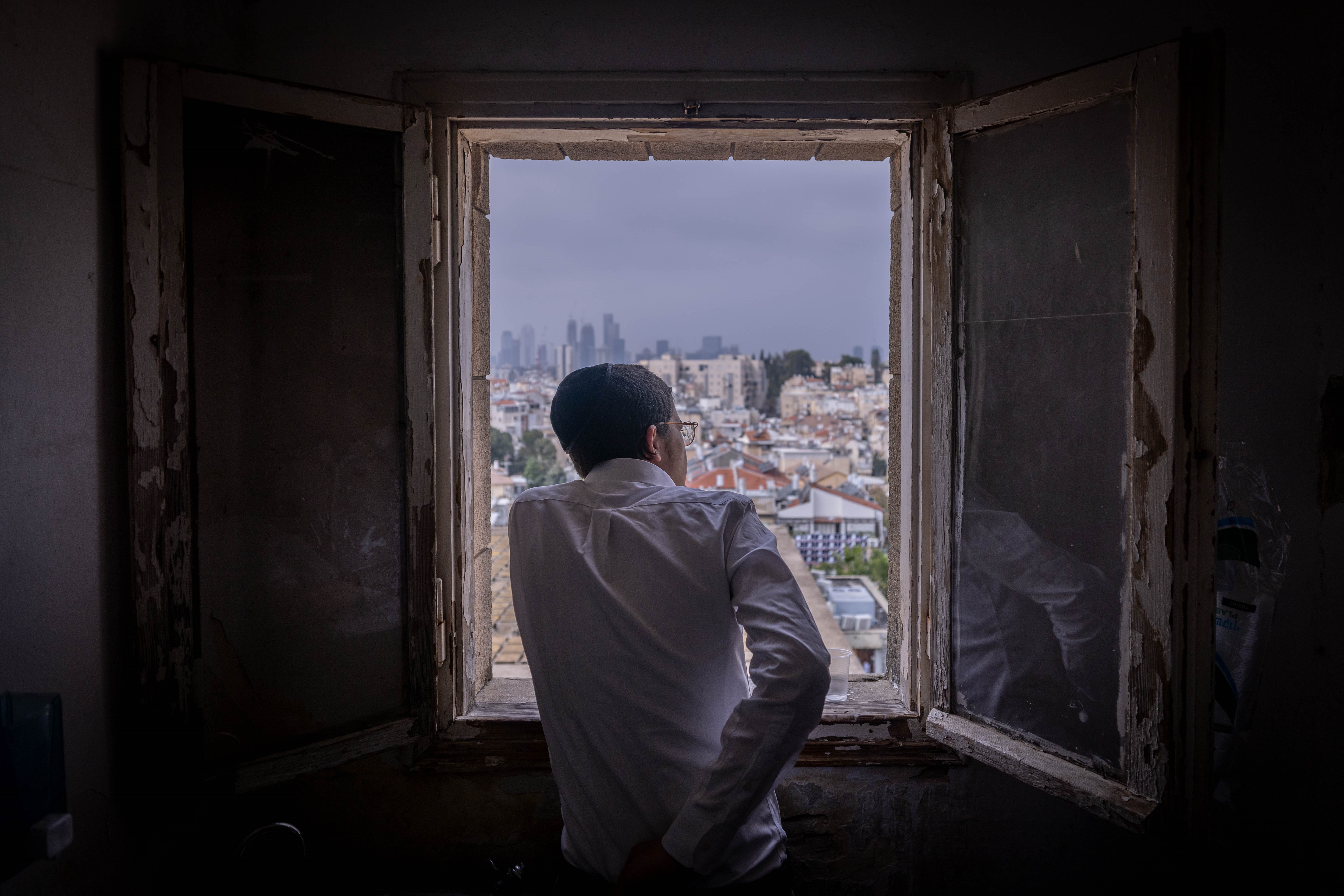
I, Too, Have Come to my Senses: It is Time to Rethink the Haredi Role in Israeli Society
Written By: Dr. Rivka Neriya Ben-Shahar
Dr. Rivka Neriya-Ben Shahar proposes a model that resembles the secular educational system of colleges and universities to identify the most gifted torah scholars, who would receive a generous stipend. Others must rethink their role as part of Israeli society.
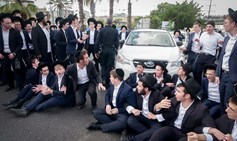
Follow the Money: On the War, Drafting the Yeshiva Students, and the State Budget
Written By: Prof. Benjamin Porat
The legal basis for deferring military service for Yeshiva students no longer exists, removing legal justification for the transference of funds to religious institutions with students under 26. Funding for Torah study institutions is the most substantial question that needs to be addressed at the current time, when Israeli society is rethinking its relations with the Haredi public.
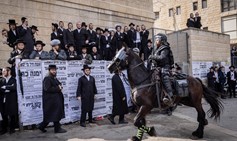
Bordering Beliefs: Israel’s Sociopolitical Divide Between Liberal and Ultra-Orthodox Values
Written By: Adv. Edna Harel Fisher
In Israel, social borders, political demands and the status of women continue to underscore tensions between liberal democratic values and the conservative, ultra-Orthodox Jewish communities.
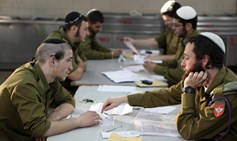
A New Social Contract with the IDF? On the Benefits of Waiting to Decide
Written By: Prof. Amichai Cohen, Dr. Gilad Malach
The need for expanded IDF service is clear—but the options for achieving this are rife with political contention and economic consequences. The time to rethink long-term security arrangements is after the fog of war lifts, under newly elected leaders with broad public legitimacy.

Most Arab Israelis: October 7 Attack Does Not Reflect Islamic, Palestinian, or Arab Society Values
Written By: Dr. Adam Asad, Yaron Kaplan
56% of all Arab Israelis say the attack by Hamas on October 7 does not reflect Arab society, the Palestinian people, and the Islamic nation. 33% say it does and 11% are unsure.
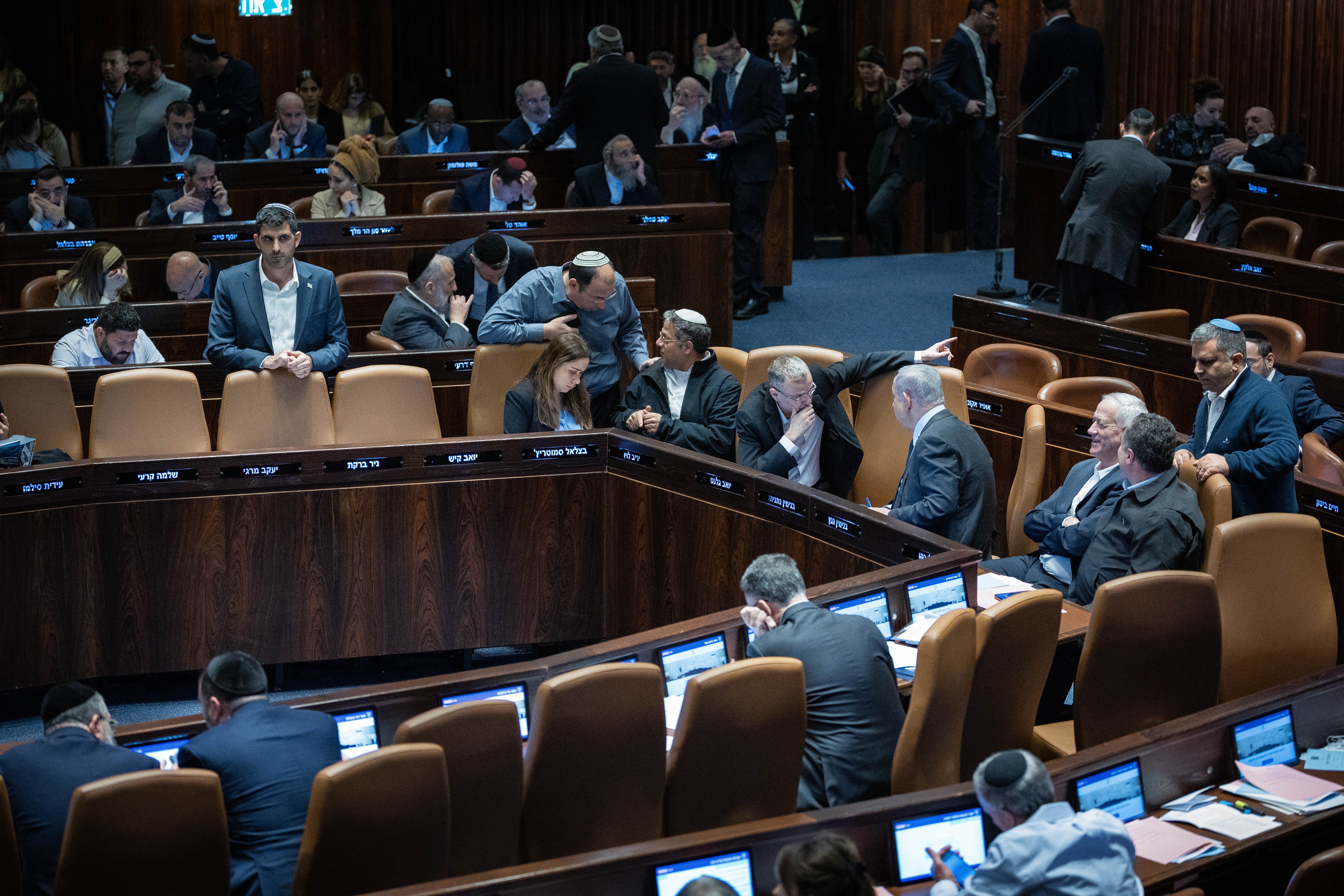
Coalition and Political Funds: Main Conclusions
Written By: Prof. Karnit Flug, Tzachi David
Coalition funds have been part of the budget-making progress for years. This study examines the trends in the use of these funds under the last three governments. One can see that the volume of coalition funds has grown up to fourfold within two Governments and that their breakdown has been less professional and more directed to interest groups.
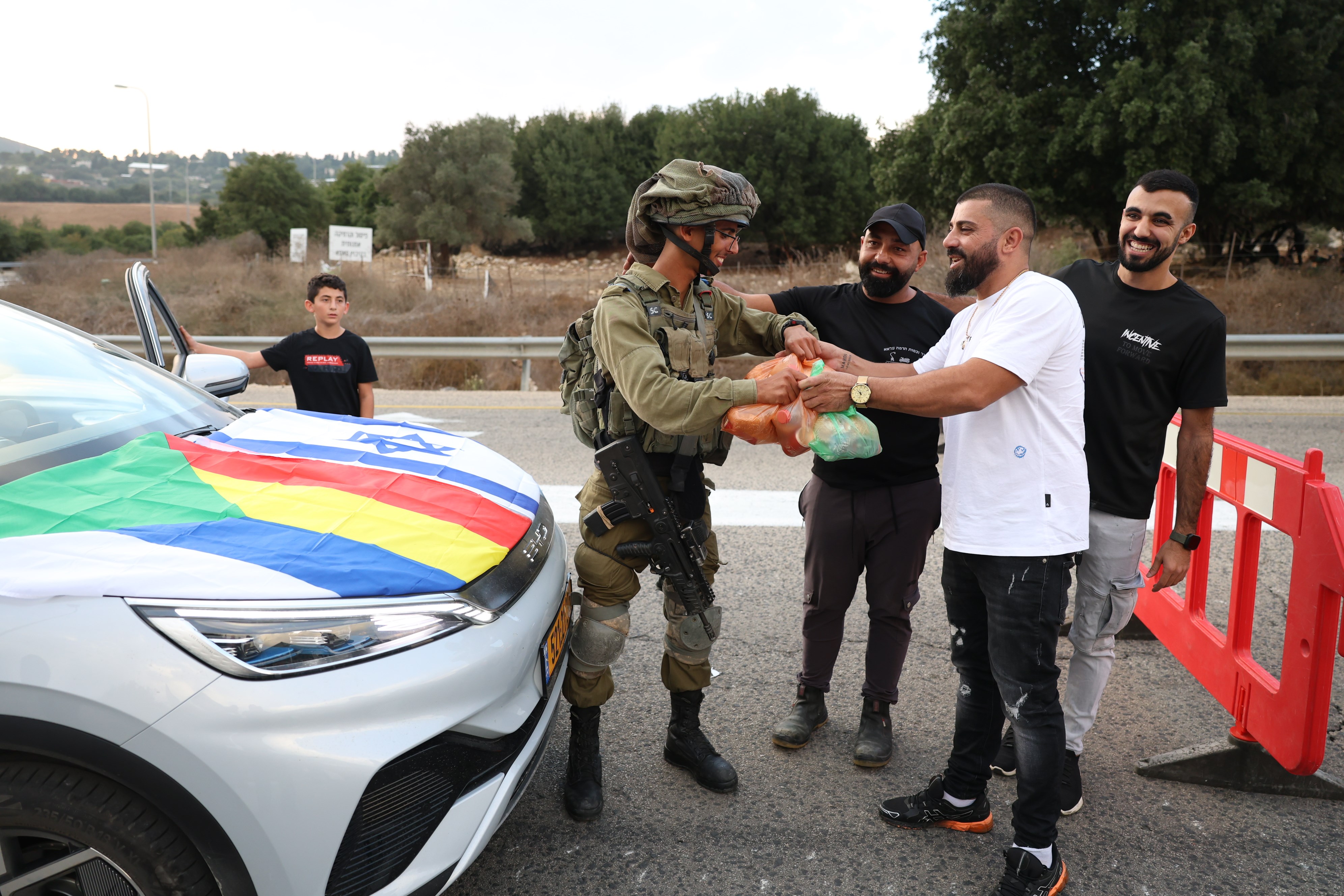
Amend the Nation-State Law. Now.
Written By: Prof. Suzie Navot
Israel's non-Jewish minorities—particularly those who are fighting and dying for the State of Israel—are worthy of appreciation and recognition, not separately, but as equals. The solution is to amend the Nation State Law, not to pass a new, separate basic law as is currently under consideration.
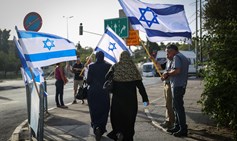
Challenges and Threats: Arab Society in Israel During the War in Gaza
Written By: Dr. Adam Asad
Conciliation between Jews and Arabs in Israel is not just a moral imperative, but also a necessary condition for maintaining peace and stability in the country.
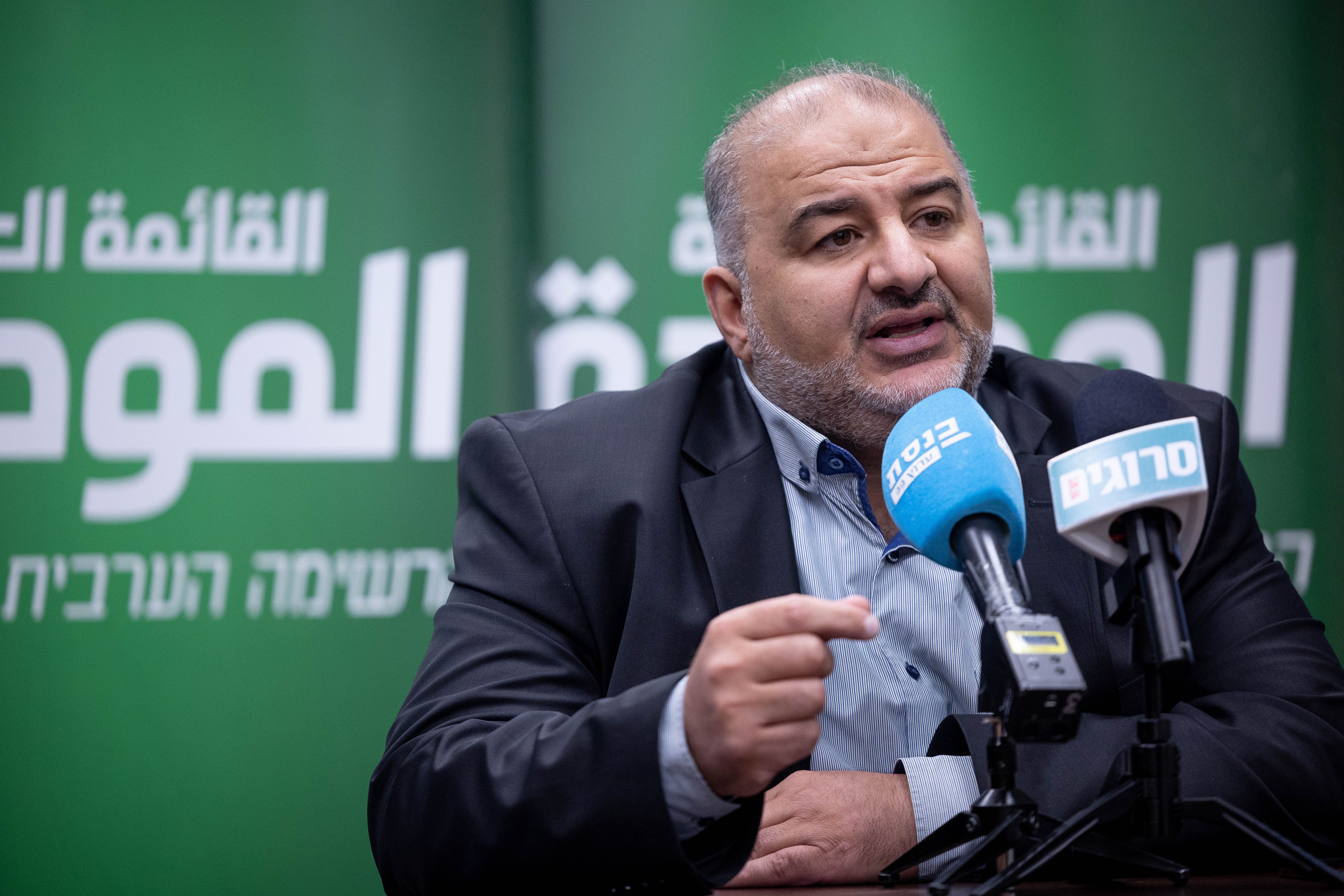
On a tightrope: Israel’s Arab citizens and the War Between Israel and Hamas
Written By: Dr. Arik Rudnitzky
The political mainstream in Arab society identifies with the Palestinian cause, namely the struggle for a two-state solution and peace between Israel and the Palestinians. The vast majority of Arab citizens strongly criticizes Hamas’ practices and completely rejects Hamas’ militant approach to the Israeli-Palestinian conflict.
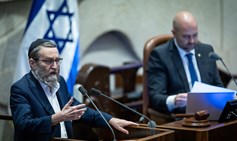
The Gap Between the Haredi Public and Politicians
Written By: Dr. Gilad Malach
The divide between Israel's Haredi (ultra-Orthodox) public and the Haredi establishment and political leadership has never been more striking. Many parts of Haredi society have joined the national war efforts while the Haredi political leadership have acted as if nothing has happened.
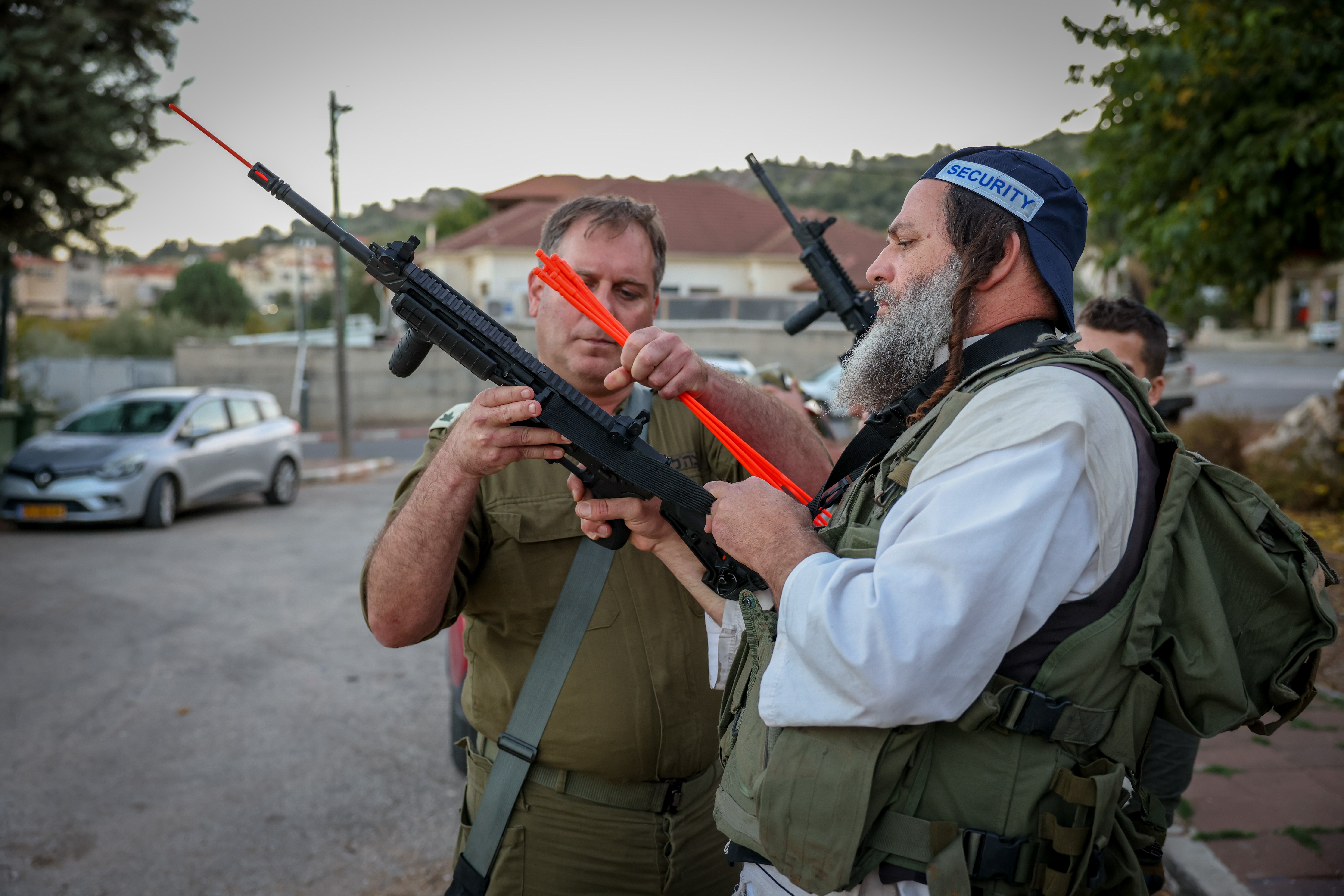
Haredi Enlistment for the Current War with Hamas is a Sign of a New Model of Rabbinic Leadership
Written By: Tehila Gado
The heads of the established traditional Haredi yeshivot have instructed their institutions to continue studies as normal during the current state of emergency, in accordance with the belief in the power of Torah study to protect the people of Israel. By contrast, the messages heard from various other rabbis reflect an understanding of changing needs and offer a blueprint for a new leadership vision.
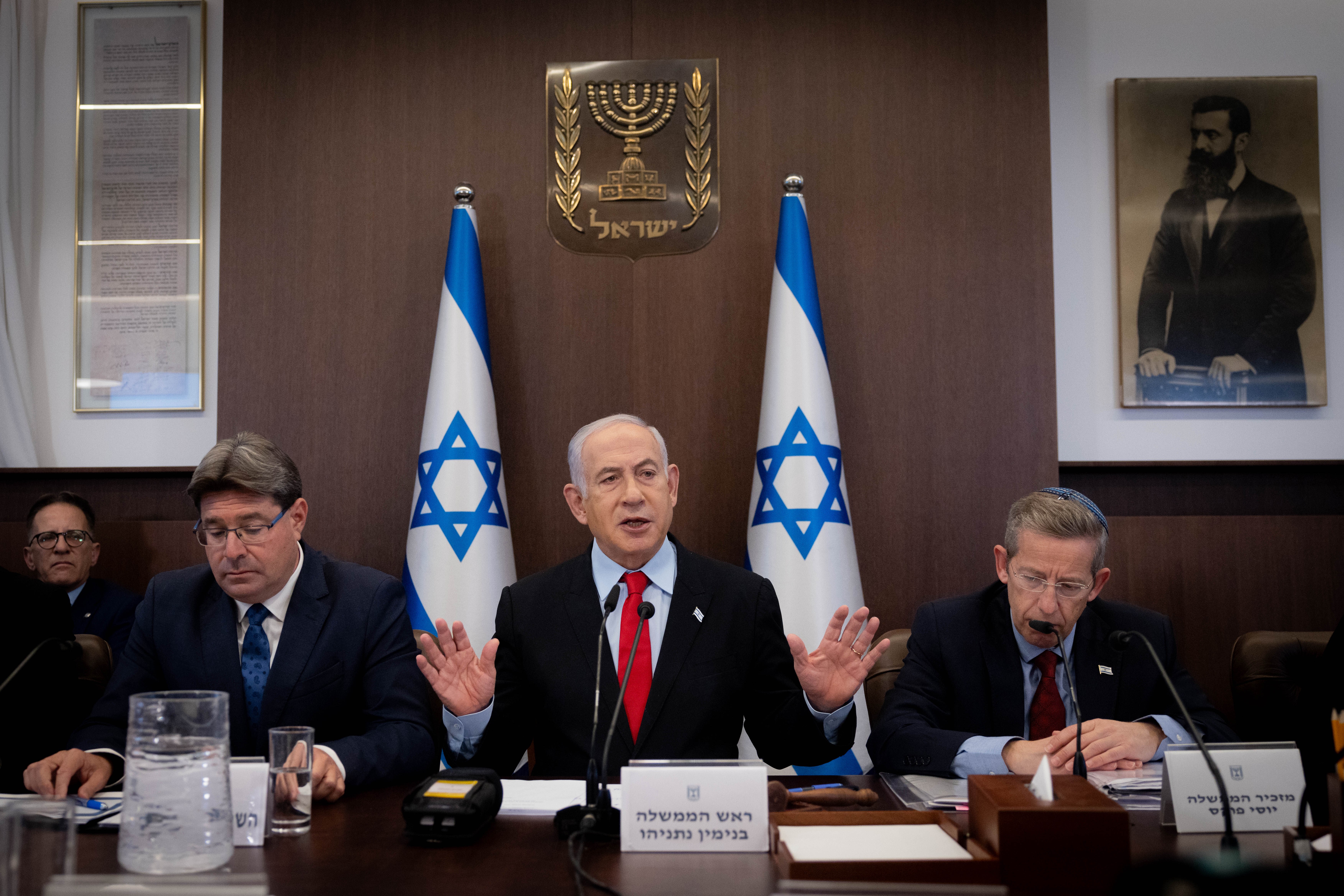
Emergency Governments in Israel
Written By: Dr. Assaf Shapira
As the brutal attack from Gaza continues, the possibility of a change in the composition in the government is being bandied about. What kind of government is possible and what has been done in the past?
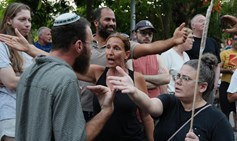
Tel Aviv's Yom Kippur Struggle Could Have Been Avoided
Written By: Adv. Shlomit Ravitsky Tur-Paz
The judicial overhaul is forcing Jewish Israelis to choose to identify, in an almost dichotomic manner with one of two camps. As they clash, the real loser is our unifying, complex, diverse, and open Jewish identity.

Haredi Integration: Not by Re-Education
Written By: Haim Zicherman
IDI researcher Attorney Haim Zicherman warns against attempts to integrate ultra-Orthodox Jews into the army by encouraging them to abandon their lifestyle, and calls for developing mechanisms that will accept and respect their values.
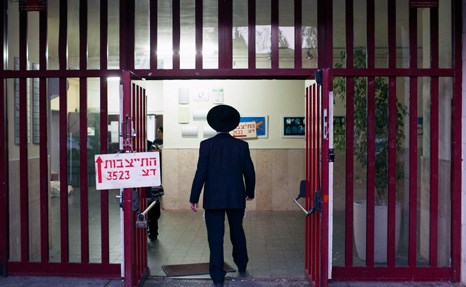
The Haredi Draft: The Need for an Alliance of the Moderates
Written By: Prof. Yedidia Z. Stern
Prof. Yedidia Stern calls for a historic alliance between religious and secular moderates that will yield a solution that will that will yield a solution that addresses the need for ultra-Orthodox army service while taking into account the most important values of the Haredi community.
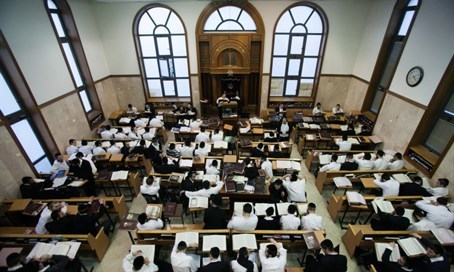
The Need for Equal Sharing of the Burden and Strengthening of Torah Study
Written By: Prof. Benjamin Porat
The need for the ultra-Orthodox community in Israel to share the burden of military service and participate equally in the Israeli economy was a central issue in the 2013 elections. IDI researcher Dr. Benny Porat shares his thoughts on how to bring about this change in the Haredi community.
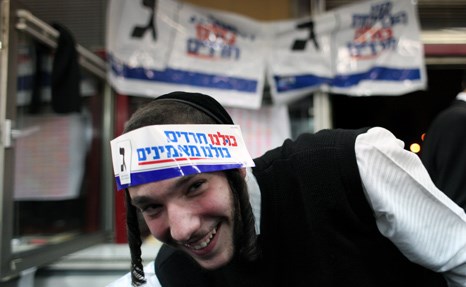
The Comeback of Polarization
Written By: Prof. Benjamin Brown
IDI researcher Dr. Benjamin Brown discusses the sense of attack experienced by the Haredi community in the 2013 election campaign and calls for a process of gradual change in integrating the ultra-Orthodox in the Israeli army and workforce.
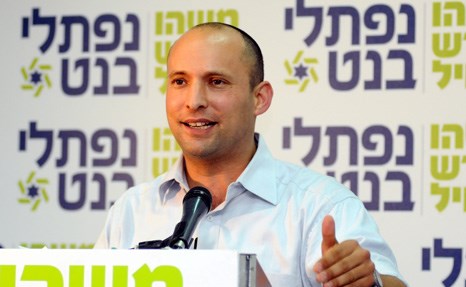
Habayit Hayehudi and Refusal of Orders: The Real Question
Written By: Prof. Yedidia Z. Stern
Naftali Bennett's statement that he would refuse orders if commanded to evacuate settlements raises questions about the type of insubordination that he and his party condone. In an op-ed in Yedioth Ahronoth, Prof. Yedidia Stern calls on Habayit Hayehudi to clarify its position on the matter.

The Haredim and the State of Israel
Written By: Prof. Yedidia Z. Stern, Jay Ruderman
In an op-ed in The Jerusalem Post, IDI's Prof. Yedidia Stern, who served on the Plesner Committee for Equality in National Service, and Mr. Jay Ruderman analyze the Haredi community's reluctance to serve in the Israeli army and present an approach that will facilitate Haredi integration into Israel's army and society.
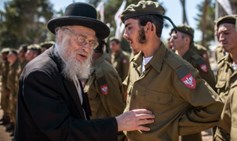
Do Not Put an End to Ultra-Orthodox Army Service
Written By: Haim Zicherman
Following the dissolution of the Committee to Advance Equality in Sharing the Burden, committee head MK Yohanan Plesner submitted proposals for alternatives to the Tal Law. In this article, IDI Researcher Attorney Haim Zicherman, who served as the content coordinator of the Plesner Committee, warns that some of those measures were personal recommendations rather than recommendations of the Committee, and may reverse trends of increasing army service by ultra-Orthodox Jews.
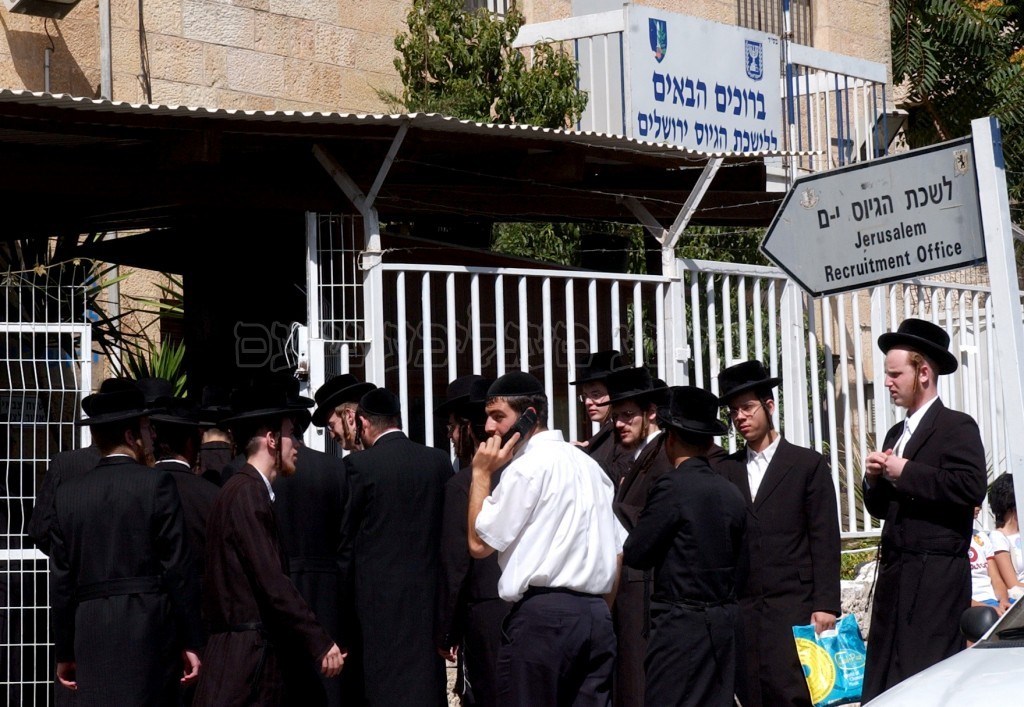
If They Give, They Will Receive
Written By: Yair Sheleg
In this response to the Supreme Court ruling on the Tal Law, IDI Senior Researcher Yair Sheleg asserts that the exemption of ultra-Orthodox men from military service is an unparalleled <em>Hillul Hashem</em>—a desecration of the Name of God, and shares his views of a possible solution.

Make the Ultra-Orthodox Serve
Written By: Yair Sheleg
IDI Vice President of Research Prof. Yedidia Stern sets the controversy over mass transportation on Shabbat and holidays in Israel in a broader context, and distinguished between the need for an Israeli-Jewish Shabbat (Sabbath) rather than a religious Shabbat.

Weakening the Civil Service is Part of the Price of the Collapse of the “Perceived Reality”
Written By: Adv. Rita Golstein-Galperin
It is no surprise that the civil service has suffered a severe blow as the current hostilities continue. In light of recent actions aimed at undermining the public sector, immediate action must be taken to address this situation in order to restore social resilience.

